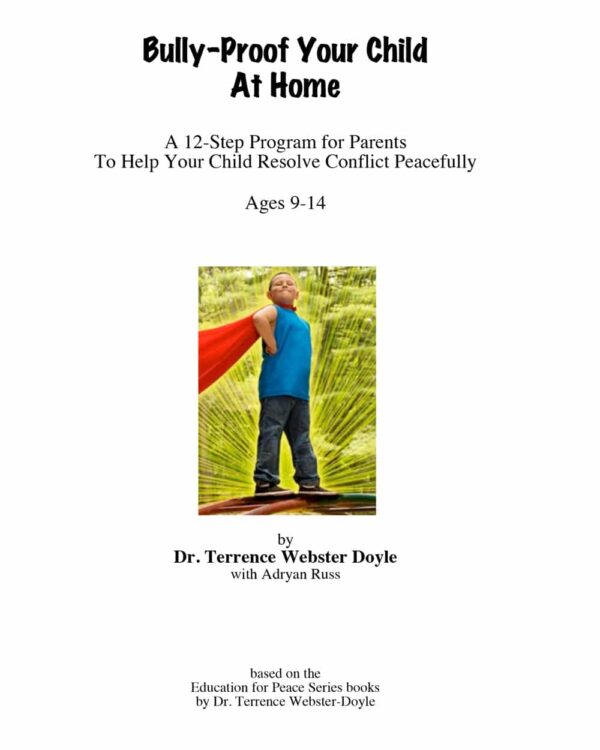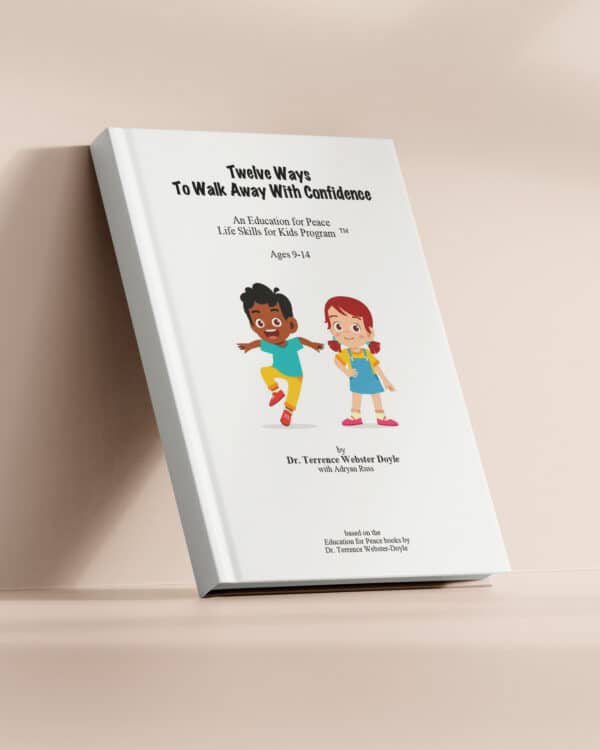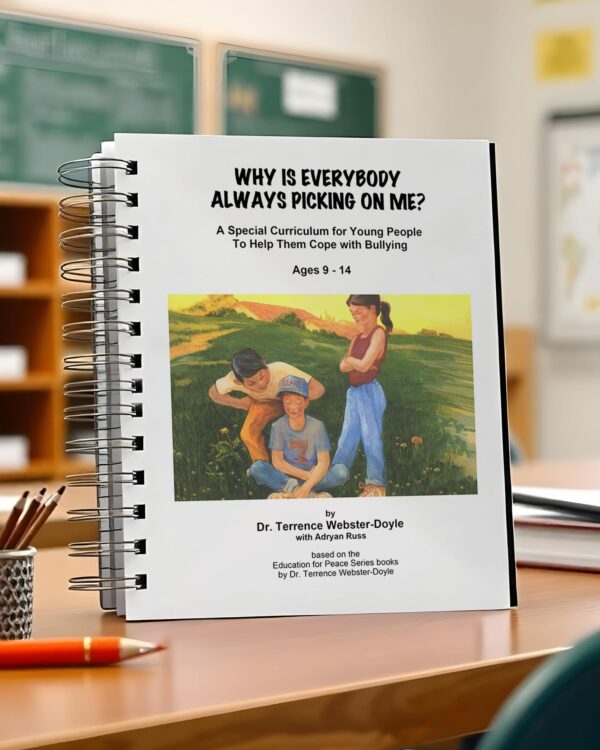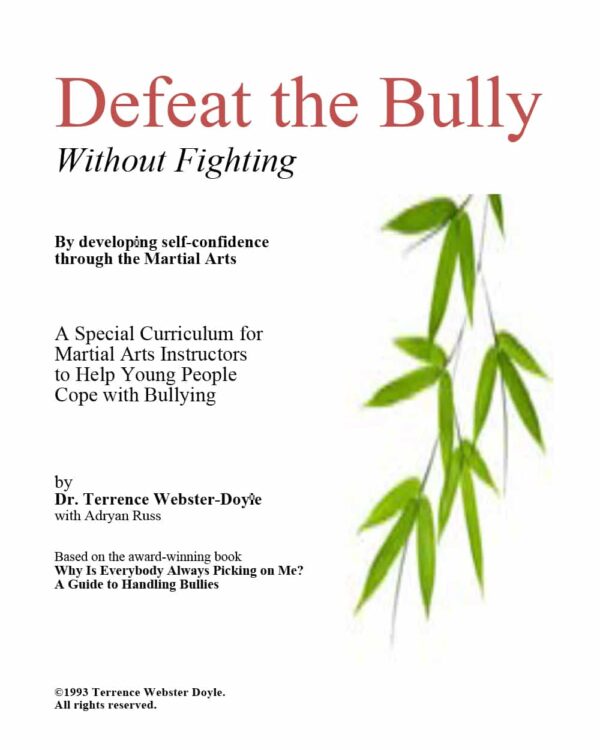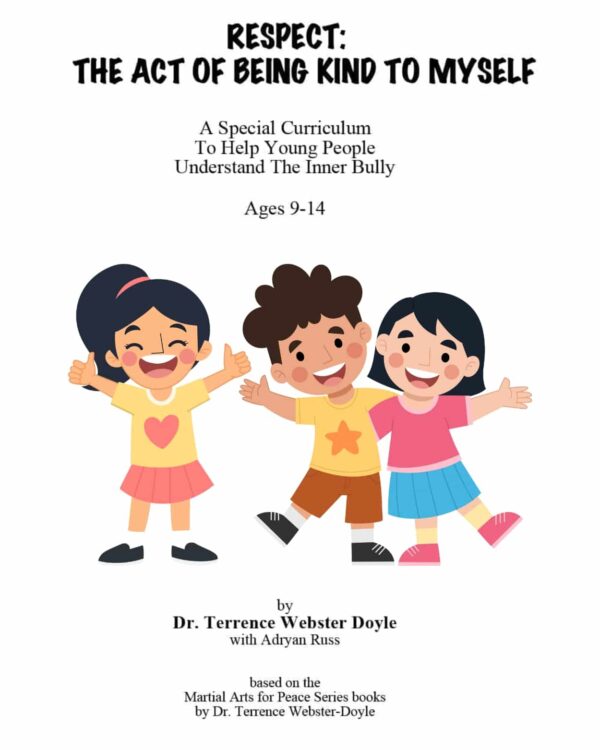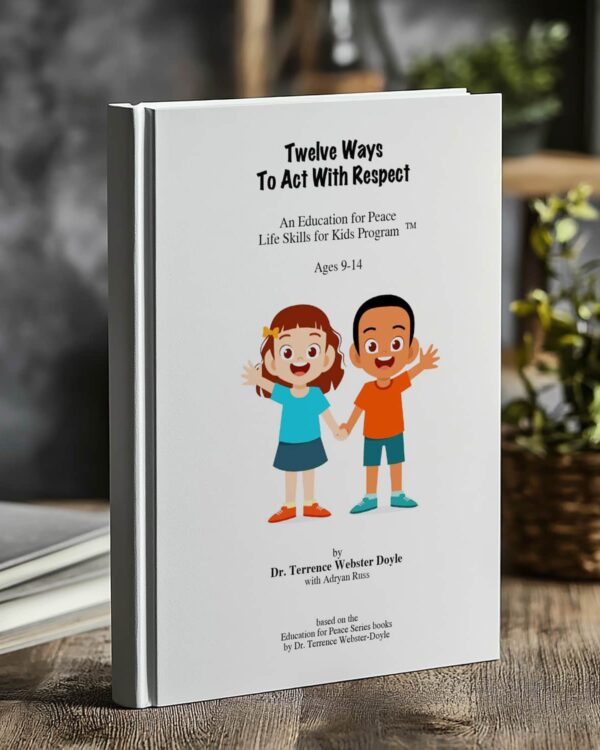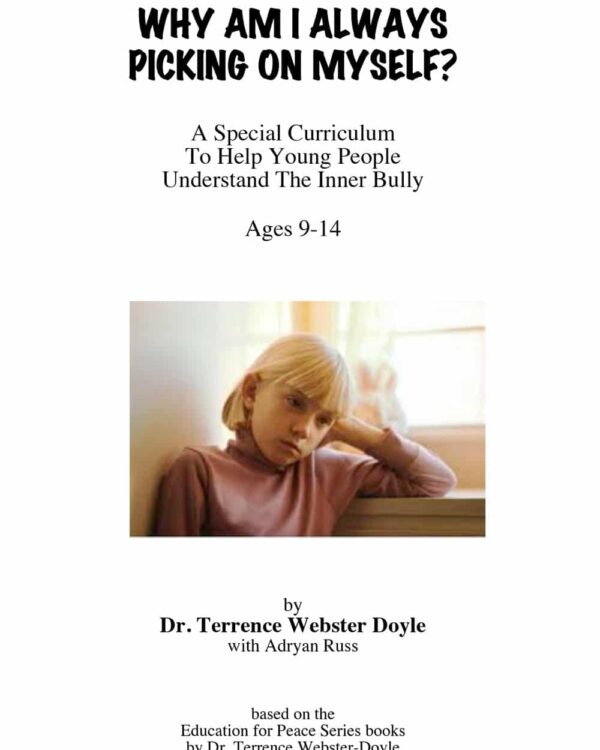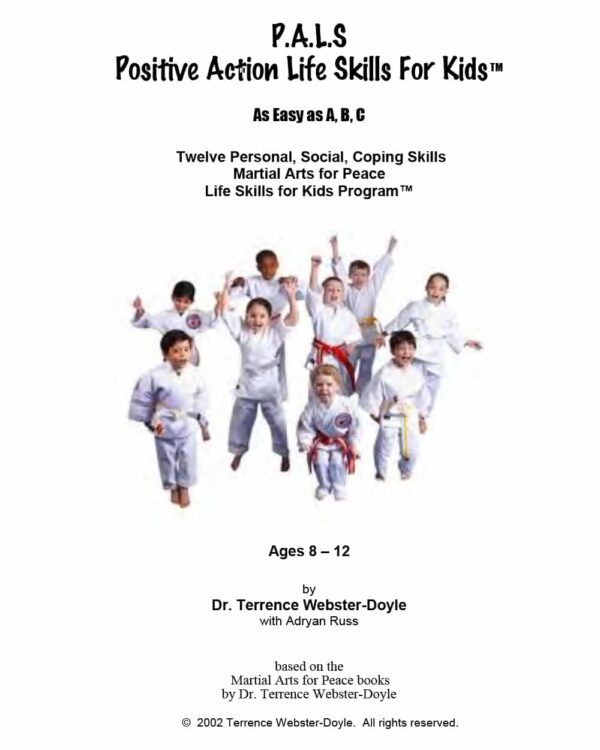Episode #3: Long Term Effects of Bullying on Children & Adults
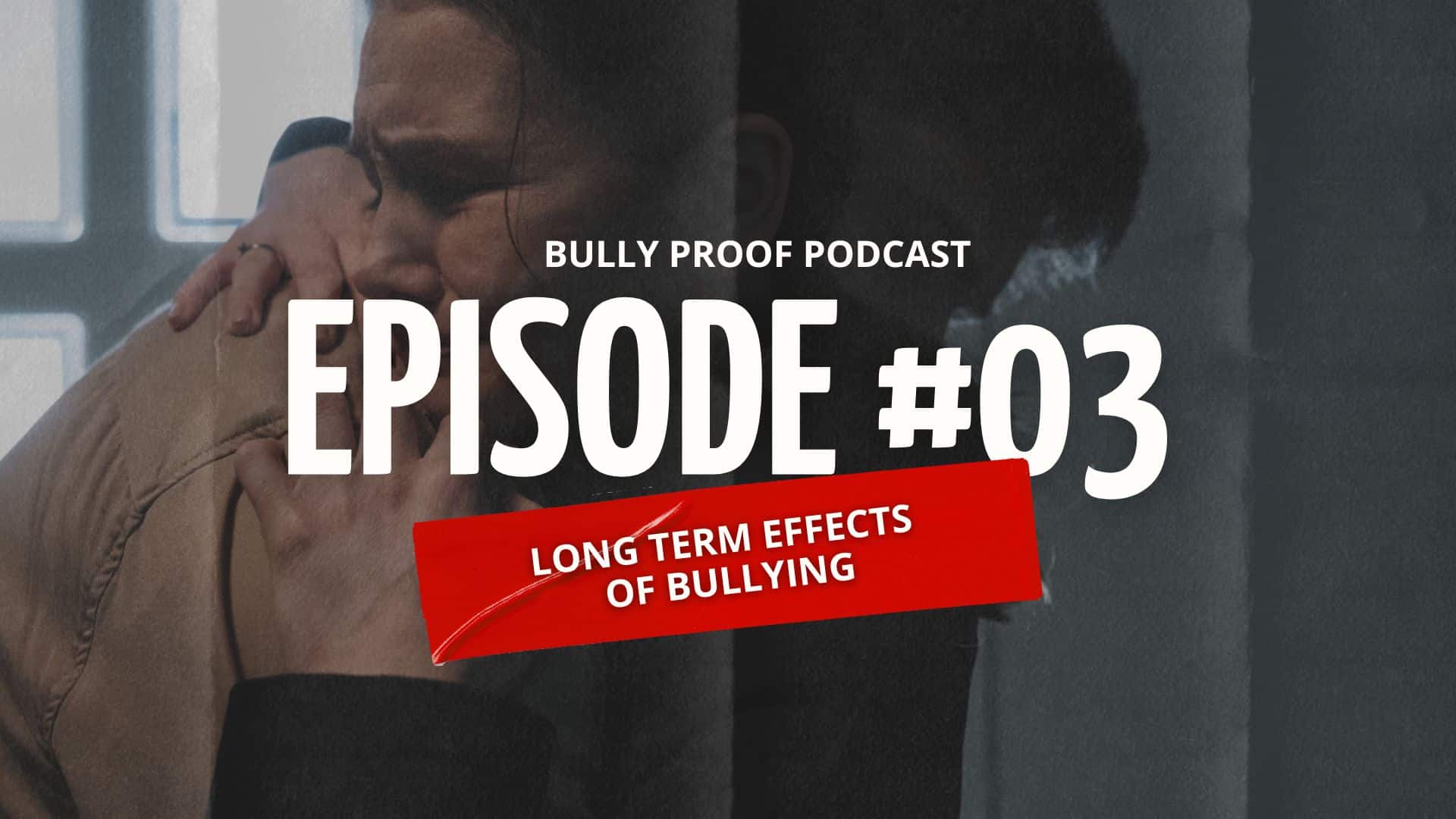
In this episode of the Bully Proof Your Child podcast, Sam and Gary discuss the long-term effects of bullying on mental health, relationships, and physical well-being.
They highlight that bullying can lead to anxiety, depression, and low self-esteem, with bullied individuals experiencing these issues at three times the rate of non-bullied peers. They note a correlation between bullying and school violence with 80% of school shooters having been bullied. Bullying can also lead to PTSD, physical health issues, and social isolation.
Strategies for addressing bullying include building community, open communication, and seeking professional help. They emphasize the importance of early intervention and support.
Podcast Transcript
Welcome to the Bully Proof Podcast, this is episode three. I’m Sam.
And I’m Gary.
Today we’re going to talk about the long- term effects of bullying. Last week we were talking about the short term, so we’re going to dig deeper into the more profound effects of it, and how it can affect you later in life, in your adulthood. It can affect things, just like last week we were talking about, your mental health, your relationships, and your confidence. So really understanding how it’s affecting us shows us why it’s so important to really be addressing this when it’s starting in childhood, and then also why we can still address it when we become adults. Definitely not done.
No, it’s not done. In fact, it starts at childhood and it influences the development of that child throughout his lifetime, right up through adulthood, it’s got profound effects.
It really does. Okay, so we’re going to cover the emotional, physical, and social effects of long term bullying, and then at the end, we’ll kind of give you some tips on what you can do to be addressing this. We’re going to start with the emotional and mental effects of bullying. Okay, so, Gary, you were telling me a little bit earlier, before we hit record, about some of the really profound effects that bullying is having on young adults and adults.
It starts in childhood, and then as they get into adolescence, they start experiencing anxiety and depression at three times the rate of someone who isn’t bullied.
And we’re seeing so many people that are having anxiety and depression issues today, it seems like it’s at record numbers.
Yes, I agree. You know, it starts as low self esteem. They doubt themselves. They feel unworthy in their relationships with other people, they tend to avoid challenges of life, and some of the things that make a career as important as it is, they tend not to try to reach for those goals. They just tend to with withdraw. Children that were consistently bullied as they develop have a much higher rate of suicide ideation. In other words, they’re depressed to the point and they’re feeling so poorly about themselves that they feel helpless, that they considered suicide.
That’s heartbreaking, that’s really horrible.
And I think a mind blowing number that I came across by the US Secret Service National Report is the violence in schools, from the shootings to the threatening to shoot, are 80% linked to bullying. So these shooters, or these, you know, violent young youths or high school students, have been bullied 80% of the time. So there’s a correlation there.
That’s a huge correlation.
Yes, yes.
Yeah, that that is not something just to skip over, that is huge amount of violence happening from this.
Yes, of course, then there’s PTSD trauma response from years of bullying, and they’ve experienced the flashbacks of bullying in their everyday life.
Something can be seemingly totally unrelated, that it, just whatever is triggering that memory and that feeling deep within your body, is just bringing it right back to that moment.
And their natural inclination is to withdraw.
All of this is leading to those feelings of low confidence and withdrawal, when really what you need to be doing is connecting with people and building that confidence and that community and not feeling so isolated.
Yes, and which, of course, leads to psychosomatic problems with physical health brought on by the way you’re feeling. Headaches, stomach aches, sleep problems, all these things that interfere with your daily life.
And though all of those things link to stress from those bullying incidences, and that PTSD and that depression, anxiety, it’s all really stressful on your body, which, it affects your body in such profound ways.
You know, there’s a lot of adrenaline dumps because of the fight or flight instinct and what it does is it lowers your immunity. It weakens your immune system. So people that have been consistently bullied tend to be less healthy than those that haven’t been.
Anti-Bullying Resources
So, I mean, what we’re really seeing from this then, from the mental problems and the physical problems, which are plaguing a lot of people these days, can really be, in part, tied back to being bullied as a kid, and then even still, maybe being bullied as adults because it does not necessarily go away.
Right. And, I mean, a lot of them will begin to lash out and become bullies. Bullies have been bullied. Yeah, it’s a coping mechanism. They get very aggressive so they won’t get bullied.
You know, it’s kind of like putting on that front so that you are keeping people arm length away.
It’s a defense mechanism. Absolutely, it really is.
If you’re feeling so isolated and keeping people at arm’s length that, of course, is going to be causing issues in your relationships with trust, whether that’s friendships or romantic relationships, family. If you can’t trust people and you’re always looking or expecting them to hurt you, how are you going to build meaningful relationships? You’re not maybe consciously doing it, but if that’s what’s happening, that’s going to further isolate yourself.
Yeah, and they tend to be awkward in social settings. You know, there’s a feeling of isolation and mistrust in groups of people, even though, even the ones that you’ve known for years, because you don’t know if they’re going to suddenly make fun of you or, you know, come at you for something.
It’s that defense. If you don’t get into that situation to begin with, you don’t have to potentially have something happen.
Yes, and I mean, it’s a cycle that repeats itself and repeats itself and repeats itself. And, you know, bully kids might become either bullies themselves, as we said, or they’ll become so withdrawn and passive in, you know, their relationships, because they think poorly of themselves.
Mm, hmm. Interestingly, in that too, you’re being extremely passive in relationships, you can then kind of attract people that are more likely to treat you poorly.
Yes, no, I think we can all see that, yeah, in the past, relationships or people that we know.
I don’t want to be blaming the person for having that happen, either. It’s just the cycle happens and how that kind of all manifests together. I do think it’s important, if you are finding yourself noticing any of these patterns, maybe in your life, not blame yourself. It is definitely not, not your fault. But there are things that you can do to take a proactive kind of approach on these things.
Absoultely, no, there are tools for this and that’s the whole point. It’s not all gloom and doom, because there are ways to deal with being bullied that are very effective.
They are, and it’s important to be able to recognize that that is what’s happening. Because once you can recognize and maybe spot some of these things that are happening, then you know, oh, this is what’s happening, so I can then take the next step to be addressing this, instead of just kind of wondering why.
Oh, another thing I kind of wanted to touch on, how this can affect, and you touched on this in the beginning, careers. So when kids are in school and being bullied, it can be lowering their academic, their grades, and things like that, which, it doesn’t necessarily mean they might not graduate high school, like many people, obviously, that are bullied do graduate, but they may be disinclined to then do post secondary or further their careers and get extra education, because they have been told, seemingly, so often that they are not smart enough to be able to do that. So then maybe they are only looking for more baseline jobs.
I know what you’re saying. I mean, because even for the trades, which are great, plumbing, electric, electricians, carpenters, great paying jobs, but they’ve learned not to apply themselves, that it’s easier to withdraw. So they tend not to go after these jobs, and they tend to have the menial jobs, if you will. I’m not being critical, but there’s a there’s a level of jobs where you’re never going to make enough money to make a living, and they’re more likely to fall into those categories if they’ve been badly bullied.
There are ways, and some of those jobs, you can become in management positions and things like that, but it is less likely that you’ll go after challenges and those promotions, and even if somehow you do find yourself in those positions, often times there’s issues of feeling like you don’t deserve it.
Yes, yes, absolutely. I’ve got grandchildren, you know, and they think very highly of themselves, and I’m very glad that they do, they just exude confidence. And I tell both of my boys, their fathers, that you have to keep that up. You just have to keep that up. You’ve really got to make sure they feel good about themselves, and you check in, because then you’re going to have a very healthy adult.
That’s so important. I’m really glad to hear that, that’s so great.
It’s like grandpa, aren’t I great? Absolutely.
A few things that we can probably go into now are what you can do if you are noticing these traits within either yourself or your friends, family, anyone that you really want to help here. A lot of it is just connect and build those community bonds, again, those relationships, so that can start with just having open conversations about what you’re experiencing with other people, so that you can be working on building that trust, and they can help you recognize that confidence that, they like you for a reason, so they can help you realize that confidence within yourself.
Absolutely and you have to, again, you have to be an active listener. You know, you sit down and you know, how was your day? And I know a 12 year old is going to tell you, you know, mmm. You have to say, mmm, what do you mean by that? And you know, you develop the conversation of how it’s going and then maybe Mikey, in the eighth grade, you know, is angry with them. And then, so, you go in and say, Well, why is he angry with you? What do you think that you’ve done, or, what do you think that he’s done? So you develop that trust, that as a parent or an adult, you’re open and all ears to a child with a problem, and that you’re here to help them.
Absolutely. Even, too, being adults, if you’re having these conversations with your friends, something that’s often very helpful, is if you’re feeling like maybe it’s only happening to you or only you’re feeling that way, if you open up to your friends, you’ll probably find out that they might have similar things that they’re going through and you won’t feel so alone.
Absolutely, it’s all on the development cycle, you know. I mean, at different ages, kids experience similar things, most of its awkwardness and, you know, self esteem related, but if you can’t solve it there, I mean, there’s nothing wrong with seeing a counselor, because it’s real important. You know.
It’s the exact same way, I mean, people say this all the time, it’s the same way you go see a doctor for some a physical ailment, you go talk to therapists for mental health problems that you’re having. It’s so important.
It really is, to be honest and open, I think goes a long way to solving all of these issues. You know, 12 Ways to Walk Away, I think is a great example of this. Giving children options, you know. If this happens to you, if Johnny is a bully and he’s coming down the street at you, cross the street. Hey, that’s pretty simple. Get out of the way. See the bully before he sees you.
The great thing about that curriculum too, and I mean, all of our different curriculums, they’re built for kids, but they work great for adults too. They’re universal messages.
Right, right! You know, you’re on your way to work, and if there’s a, you know, someone who’s just nasty to you getting ready to get in on the elevator, don’t get on that elevator. Wait.
You’re walking along the street and someone’s kind of giving you weird vibes over there, just don’t go on that side.
Yeah! And, you know, some people link that to, oh, you know you have to stand up for yourself. Well, not all the time. It’s better to think your way through things than to get into conflict.
Absolutely. Why get into it if you don’t have to?
Right!
Also, building resilience in kids and adults is really important, because this can also help with things like anxiety and depression that can that are leading from this. Because even if you are being bullied, and you’re able to be confident within yourself and have that resilience, you kind of just let it go off your back like a duck with water, it just kind of slides off you. Once you’ve worked on building those skills, it won’t bother you as much.
No, it’s true. It’s true. And then you can get lost in your hobby, and that’s self rewarding, because you do your hobby because you’re good, and so you know, it keeps coming back, and that’s a way, you know, for you to bounce back from.
So many things, it’s just about building your confidence in whatever aspect you can do that in. There’s so many different ways to do it.
So important for children have self esteem because that stays with them, and they’ll have that through their adulthood and become healthy, normal, functioning adults.
And I mean, the great thing too is even if you are struggling with your self esteem as an adult, you can always work on it. It’s never a lost cause. You can always work on and make yourself better and just better than you were yesterday. That’s always how I think of it.
Yes, yes. And I, you know, and I think again, I know I come back to martial arts because I’m, because that’s what I’ve done for 40 years, I think if parents were to just do their homework a little bit and look into martial arts classes, it doesn’t matter what style. It matters what type of instructor, though. You need someone that’s understanding and soft spoken, because it doesn’t take an awful lot of martial arts for a child to get really confident. So I would see it in my classes within three months.
Wow, that’s really fast.
Yes, you know. And I mean, so you don’t need much. And I know Terrence, Dr. Webster-Doyle, always said, “All you need is blocking skills” and that’s enough confidence for them to use the the tools that we we provide. So it’s not, I’m not asking parents to do an intense martial arts class, just think about the importance of a child thinking he can defend themselves.
I know, even as a woman, I know that would be, I haven’t taken martial art classes, I really should, but I know that would be extremely helpful, because I do a lot of solo like hiking and walking. Really important to have that skills. Yes, never know what’s going to happen.
Yeah, I used to teach a women’s self defense class with a local police officer. He would come in, and we would go through it, and 90% of it is mental, knowing where you are, knowing what the potential risk is, knowing what is on the other person’s mind that’s within 20 feet of you, which you can tell just by looking. So as with children, a lot of it is just mental.
It’s being aware of your surroundings.
Yeah.
Have you noticed a change in martial arts in general, kind of martial art classes over the years?
When I first came in, it was all about a warrior. You had to be a tough guy, and that’s what they were teaching. The side benefit of that is most people didn’t look to fight. They just naturally found that they didn’t want to fight if they knew how to. Now, there’s a more educated group of young instructors out there, and they tend to see the whole field, they tend to see that they’re there to help this child feel better about themselves. They’re here to help this child organize themselves. Because martial arts is a hierarchical discipline. In other words, you know, I’m the drill sergeant, you know, you do this, you do that, and you do that softly, but they’re teaching them the orderliness and then the respect. And I know one of the things, with my two boys, when they were taking, is they learned to look you in the eye when they were talking to you, and that goes just such a long way, because it shows that they’re listening, they’re engaging with you, and they’re attentive. So I think today’s martial artist is a little mellow in that they see the whole development of the child, or the ones that I’m aware of in the state of Maine anyways.
That’s a that’s a nice change!
Yes, much.
Yeah, that’s really great.
My instructor, which tells stories, Taekwondo has certain stances that you have to do and and they’re very technical with your legs. So his instructor would hit him with a bamboo stick on his legs if he wasn’t right. It’s just, it’s more effective to say, “Hey, Johnny, you want to straighten out that back leg, please.”
In martial arts, is it, and forgive me, because I have not taken, I’ve taken like one class. Are there different classes for like, adult beginners, or are they.
No, no, and I’ll tell you why. Because if you’ve got a class, what there is, is a lineup structure. So if you’re the first, you’re the new white belt, you’re at the back row at the very end. Now that may seem demeaning, but you learn. So you learn from the, and the orange belt is in front of you, and the green belt is in front of them, and the brown belt in front of them, and the black belt is up front, so you can see the whole classroom, and that’s how you learn your techniques, and then you learn your etiquette that way.
So while you’re treated as the last member into the school, you’re treated with respect, and you’ve got sort of stereo learning that you can just look around. Oh, that’s how you do that block. And so, so they come along that way, and they learn how to speak with each other just by watching higher belts speak. So the answer is, no, it’s all combined, and it’s more effective that way.
Yeah, that’s great. I really like that idea. I mean, whenever I go to the gym and go to new classes, I’m always in the back want to be watching what other people are doing. It’s really effective.
Yeah. And that’s the same with like, yoga classes or anything, you know, you get back there and then you’re able to watch everyone else, and so you get your own pose correct, you know?
Yeah, it’s a very effective way to do it. So that makes perfect sense.
Yes.
One thing I did want to mention for this is, many communities have different martial art classes. We also have a online martial arts class, just basics, where you can learn blocks and breathing things like that. We’ve mentioned it before, it’s a great resource, so you can always check that out too, if you want to maybe do both, or just one, try it out.
No, it sure is. No. In fact, I would recommend watching the videos and, you know, see if there’s interest there, and if there is, I mean, you know, I think every YMCA or a school system has a Saturday karate class, someone comes in and teaches it. So, they’re everywhere, and you don’t have to be a black belt. I mean, you just learn a couple of basic things and you begin feeling better about yourself and feeling confident.
Yeah, it’s quite amazing how just some very simple and basic skills can really help your confidence, it’s quite spectacular actually.
Social Emotional Resources
I used to smile because we’d have white belt children, you know, you don’t get a belt for like, three or four months, so you have to stay with it. They would not look you in the eye or they’d look at the floor when you’re questioning them and their answers. But by the time that orange belt came, so that’s three months, for orange stripes, or whatever it was, there’s a reward for working hard. That’s the belt system in the martial arts. By the time that first recognition came, they’re looking at you right in the eye. That’s what you’re looking for. That’s what you’re looking for. They’re feeling good enough about themselves to engage you eye to eye.
That’s wonderful.
Yes, yeah.
That is great. And it’s wonderful that kids are doing that with adults, because I know, at least speaking for myself, when I was a child, I was a very nervous, shy child, so being able to kind of speak with adults and look them in the eye is a very big thing.
Yes, yes. I remember a student that I had, I used to go into the local school system, you know, for their after school program. I would come in once a week, and I teach basic martial arts, taekwondo. There was a little girl, I think she was a third grader, anyway, she couldn’t look at you should look at the floor. If she thought she wasn’t doing it right, she’d cry. Ten years later, she’s was a second degree, black belt. She went, she came to my school. She is, now, I think she has her master’s degree. She is a college trainer. So one of the sports teams down here in Florida. She’s the head trainer now, and so she went from someone who wouldn’t engage to someone who, you know, took the tiger by the tail. I mean, very, very successful. Now, you know.
Amazing. It’s so nice to hear stories like that.
Yeah, because they know, I mean, they’re really few and far between, but I I always grab on them. That’s enough of martial arts.
Okay, so to wrap this all up, because this has been a really great conversation, Gary, I just wanted to kind of do some key takeaways from this whole conversation, and it’s that bullying really can have long lasting and far reaching effects in your life. It is definitely not a childhood issue. I know it’s often portrayed that way, but it’s really not. As a society, we need to be aware of what these effects can be and how it impacts individually but also societally, because these impacts are really far reaching.
Absolutely. I think the point in time that you can make the biggest intervention is in childhood, because if you don’t, then you’re actually dealing with the symptoms and but to your point, it’s a societal problem all the way through.
I’ve read somewhere that it’s either within the first four or seven years I think, I may be incorrect on that, as a most important time for child development and it affects their entire life in those very short few years.
Yes, oh yeah, no, I’ve read the same thing.
So it just really hammers home that point you have to be so aware in the first few years and really work at addressing these things and not just letting them go.
Yeah, and I mean, Dr. Webster-Doyle said, you know, with many of his books and his writings, that bullying is perhaps the most urgent issue children face today. That’s true.
You can see it so clearly in everything we’ve been talking about. He was definitely onto something when he said that.
So as we wrap up here, I just wanted to remind you that we want to make this a really community focused podcast, so if you have anything you would like to add to our conversation, if you have any questions, or even your own stories that you would like us to talk about, please send them to a po*****@*******oc.org. I’ll add that into the show notes so you have the email, and we just really would love to hear from you please. If you enjoyed this podcast, please leave us a rating. We’re very new, so all ratings really help us get found.
We are here to help, and I think with the right support and understanding, anyone can address the issue of bullying in a very successful way.
Absolutely, we can all do our part.
